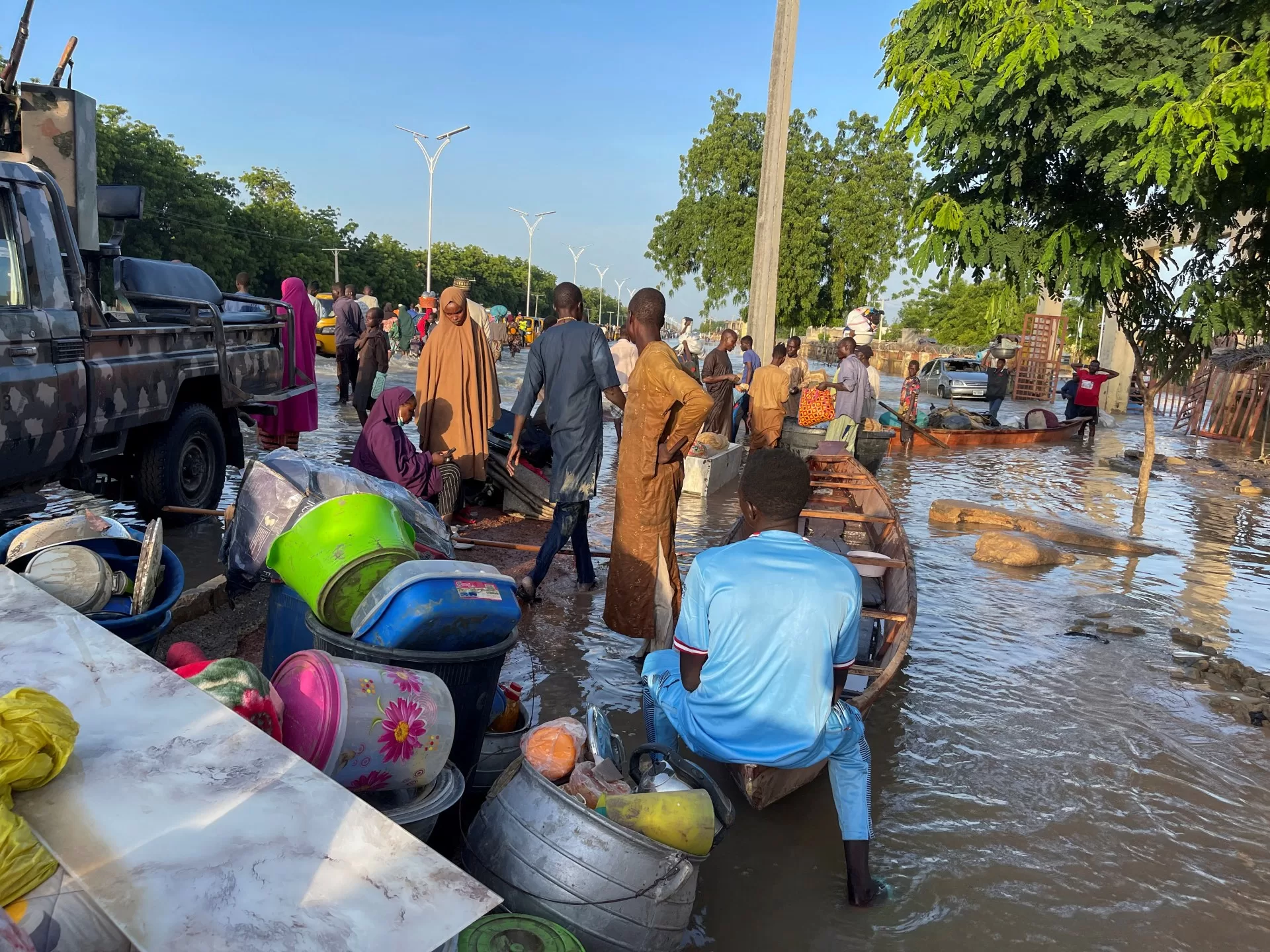Africa is bearing the brunt of climate change despite producing tiny percentage of global emissions.
Global warming intensified the rainy season in many African countries in 2024, sparking deadly floods, according to scientists.
The World Weather Attribution (WWA) network said on Wednesday that human-driven climate change, caused by the use of fossil fuels, had made seasonal downpours across the Niger and Lake Chad basins 5-20 percent worse this year, unleashing a humanitarian catastrophe.
“These results are incredibly concerning,” said Izidine Pinto, a researcher at the Royal Netherlands Meteorological Institute and one of the study’s authors.
He pointed out that “spells of heavy summer rainfall” had become the “new normal” in Sudan, Nigeria, Niger, Cameroon and Chad.
“With every fraction of a degree of warming, the risk of extreme floods will keep increasing,” Pinto added, calling for the United Nations COP29 climate summit to “accelerate the transition away from fossil fuels” when it meets in Azerbaijan next month.
Floods killed about 1,500 people and displaced more than one million in West and Central Africa this year, according to UN aid agency OCHA. The rains also overwhelmed dams in Nigeria and Sudan.
Such downpours “could happen every year” if global temperatures increase to 2 degrees Celsius (3.6 degrees Fahrenheit) above pre-industrial levels, warned WWA. It forecasts that this could happen as early as the 2050s.
The network’s scientists focused on war-torn Sudan, where millions of displaced people have been uprooted by conflict and driven into flood-prone areas.
They used modelling to analyse current weather trends, comparing them with patterns in a world without human-induced warming, finding that monthlong spells of intense rainfall in parts of Sudan had become heavier as a likely result of climate change.
“Africa has contributed a tiny amount of carbon emissions globally, but is being hit the hardest by extreme weather,” said Joyce Kimutai, researcher at the Centre for Environmental Policy at Imperial College in London.
The role of climate change in the floods was compounded by other human-made problems, said scientists, calling for better maintenance of dams and investment in early warning systems.
“This is only going to keep getting worse if we keep burning fossil fuels,” said Clair Barnes from the Centre for Environmental Policy.
